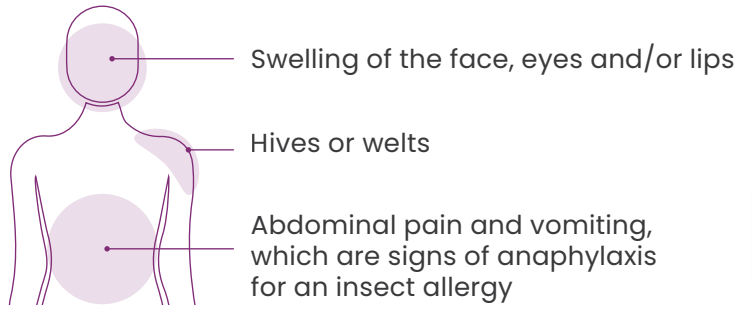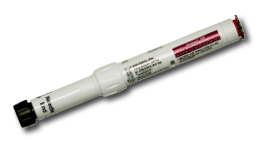Adrenaline Autoinjector
for the emergency treatment of anaphylaxis
What is Anapen®
& what is it used for?
Anapen® is an adrenaline autoinjector for the emergency treatment of anaphylaxis.
Anaphylaxis is the medical term for a sudden and severe allergic reaction that usually affects more than one part of the body and can be potentially life-threatening.


Anaphylaxis signs and symptoms
Signs and symptoms of anaphylaxis may include any of the following:

Sometimes there are early signs and symptoms of a mild-to-moderate allergic reaction which may develop into anaphylaxis. These include:

Anaphylaxis triggers
Triggers, also known as allergens, are normally harmless substances
that cause anaphylaxis in some people. They include:

Bee and wasp stings

Peanuts and tree nuts

milk

eggs

fish & shellfish

soy

wheat

pollens

medicines

latex

exercise

unknown causes
In some cases, the cause cannot be identified. This is known as idiopathic anaphylaxis.
Identifying the trigger is an important part of managing anaphylaxis, so measures can be taken to reduce or avoid exposure. Sometimes the trigger is obvious, but in some cases, you will need to work with your doctor to confirm or exclude potential triggers.
When a person is exposed to a trigger, anaphylaxis usually occurs within 20 minutes to two hours, so emergency treatment is vital. Anapen® is a first-line medication.
Anaphylaxis is unpredictable
Anaphylaxis can happen without warning. If you are at risk of anaphylaxis,
it is essential to always carry your Anapen® autoinjectors.





Why is anaphylaxis unpredictable?

Different triggers can cause anaphylaxis, making it hard to anticipate when it might happen.

Reactions vary from person to person and each reaction can be different.

Some factors can lower the threshold for anaphylaxis and may include:
- General health
- Alcohol
- Medication / Drug use
- Exercise

Moderate to severe anaphylaxis is more likely in people who have other conditions such as:
- Heart disease
- Allergic rhinitis
- Asthma
- Atopy
- Thyroid disease
- Type 2 diabetes
Assess your risk
Simply select the following statements that apply to you and take your results
to your next appointment to discuss your treatment options with your doctor.




